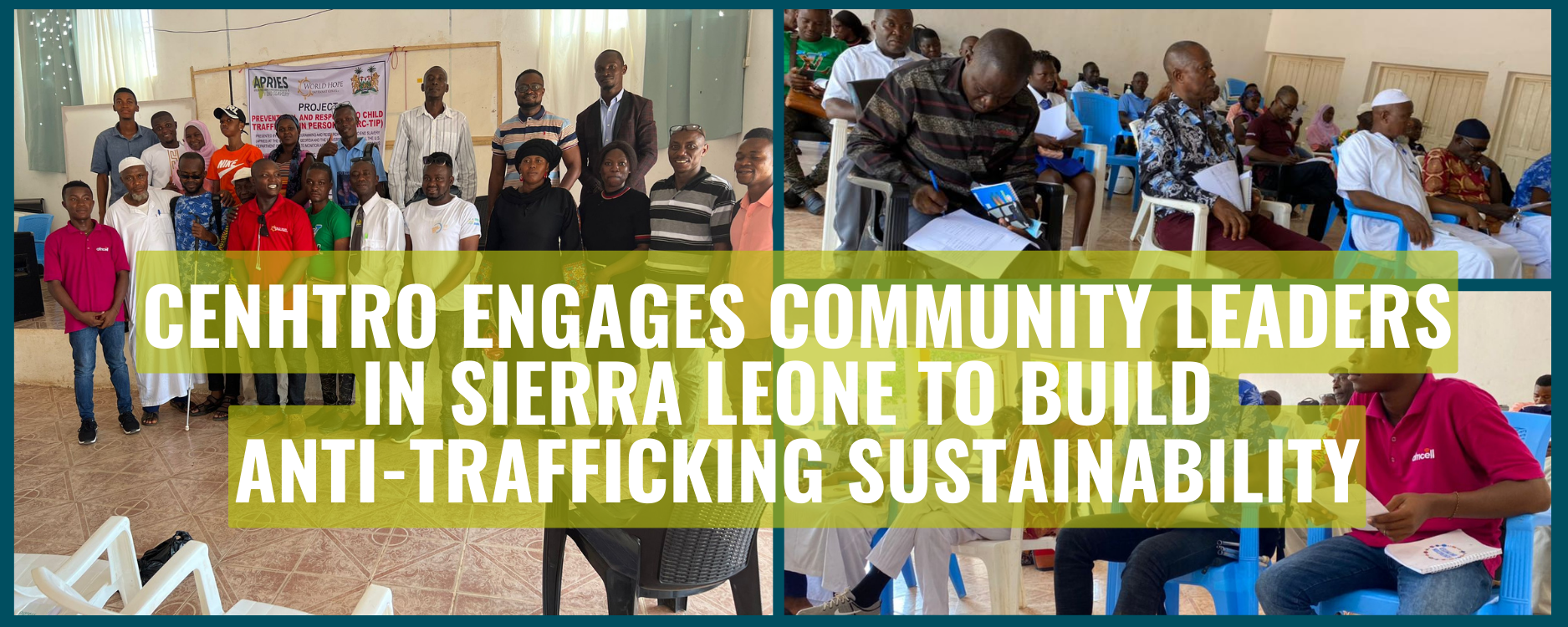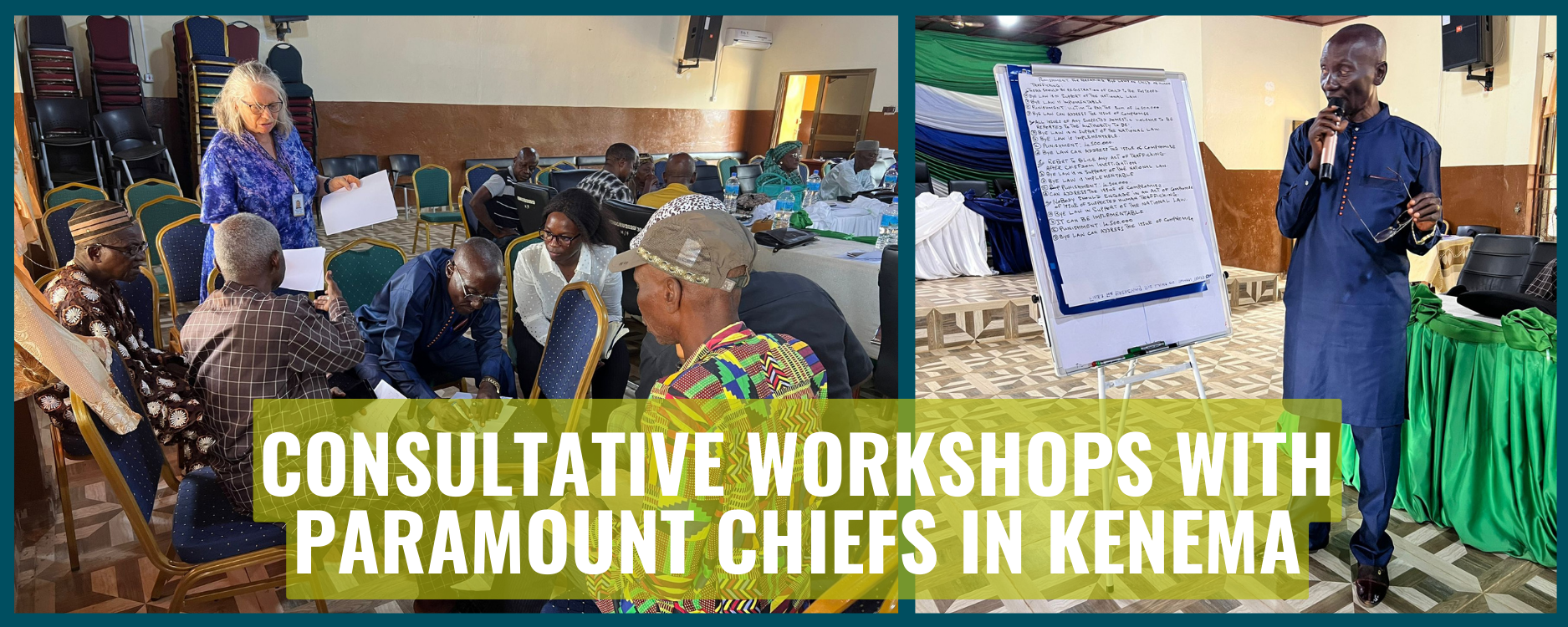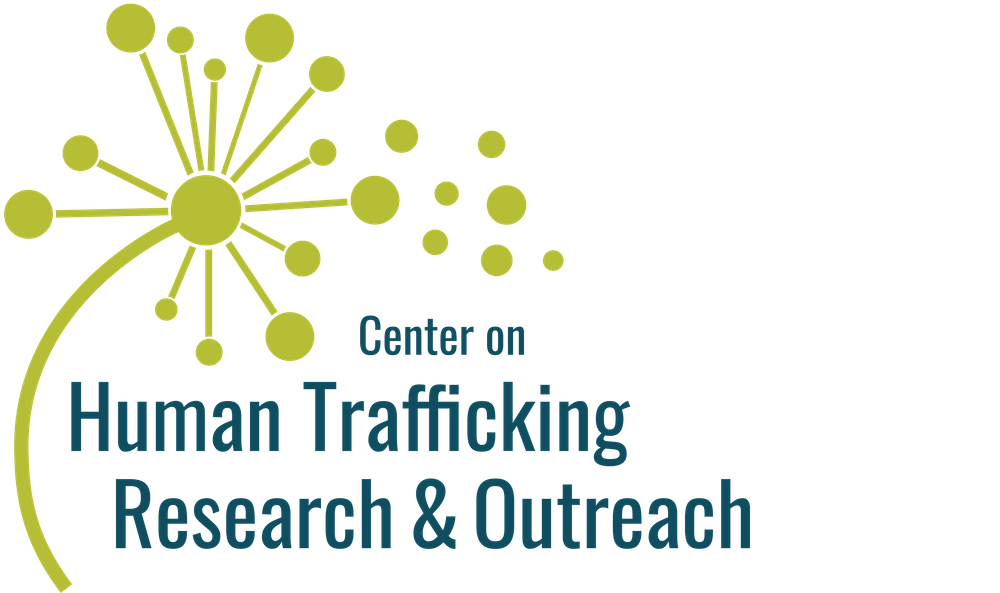CenHTRO Engages Community Leaders in Sierra Leone to Build Anti-Trafficking Sustainability
Wednesday, June 8, 2022

CenHTRO’s African Programming and Research Initiative to End Slavery (APRIES) anti-trafficking project in Sierra Leone launched its programs in Kambia, a district in the northwest part of the country near the Guinea border, with an event on April 19, 2022.
CenHTRO/APRIES staff and implementing partner World Hope International (WHI) presented an overview of ongoing programs to prevent trafficking, protect survivors, and prosecute traffickers (PDF) in Sierra Leone hotspots—Kambia, Kailahun, Kenema, and Kono. Staff also explained how robust research informs the programs being implemented in these trafficking hotspots, Kambia included. CenHTRO/APRIES also emphasized how engaging the community creates a sense of ownership in the project, which is crucial to its sustainability.
WHI staff coordinated and planned the launch, supported by APRIES Sierra Leone Country Coordinator Umaru Fofanah. APRIES Sierra Leone Program Manager Aicha Traore traveled to the country to attend the event and meet with local authorities and government stakeholders to enhance their knowledge on CenHTRO/APRIES’ work and further collaboration.
Kambia District Council Chairman Mohamed Yayah Bangura chaired the event. Attendees included community leaders/ members, government representatives, community-based organizations, NGOs, and other district actors engaged in TIP. The community-centered event gave attendees the opportunity to share their insights on the post-launch activities and how the community structure could support the intervention model.
During the opening session, Bangura shared a goodwill message that expressed his commitment to provide the required support for the project implementation in the district and pledged to give the necessary time to engage with WHI’s Kambia Field Officer. A representative from the Ministry of Social Welfare shared how pleased he is with the level of engagement CenHTRO/ APRIES and WHI have with their office. Engagement started as early as the project design stage, which is very crucial for the sustainability of a project.
A statement from the Deputy Director of Education Alpha Sesay highlighted the responsibility of school authorities, educators, and parents to work collectively in protecting children from trafficking. He noted that he believes the project will give an opportunity to all these actors to work closely and combat child trafficking in the community.
The event ended with a reflection session, during which attendees shared thoughts on the event and their commitment to support the project by contributing and adding value within their capacity.
Following the launch, Traore and Fofanah, accompanied by the WHI Program Manager and the Kambia Field Officer, met with key community leaders and stakeholders to share thanks after a successful event and strengthen relationships.
Engagements included meetings with the Paramount Chief Member of Parliament (PCMP)
for Kambia, the Kambia district council authorities, and the Deputy Director of Education.
Our conversations focused on their support for the project and highlighted upcoming
activities within the district and APRIES’ new prosecution project.
Following the district launch, APRIES and WHI gathered Paramount Chiefs to participate
in two days of consultative workshops. The event enhanced local leaders’ knowledge
of child trafficking and supported them in harmonizing child trafficking by-laws that
align with the national legal framework. Constructing community child trafficking
bylaws is essential in tackling the causes of Trafficking in Persons and ensures a
proper and coordinated response to TIP, which will drastically reduce the number of
occurrences within the community.
The Provincial Secretary-Eastern Region Andrew J. Fofanah made an opening statement on behalf of the Resident Minister committing their support to the project. WHI’s Technical Advisor, Legal Aid Coordinator, and Kenema Field Officer led the trainings, facilitated by the Kenema Senior District Officer William Ngebai. Trainers covered key topics relevant to the Paramount Chiefs. For example, one session covered the structure of by-laws and important items to be included in them. These participatory sessions were conducted in Krio. Paramount Chiefs also spoke in their local languages.
The 16 Paramount Chiefs then broke into three groups and wrote down elements that
they deemed essential to be included in by-laws concerning child trafficking in their
chiefdoms. These insights were consolidated and shared with each Paramount Chief to
take back to their chiefdom for further review by their council members. The final
consolidated by-laws will be shared with the Senior District Officer for WHI’s consideration.
The work described in this article was funded by a grant from the United States Department
of State. The opinions, findings and conclusions stated herein are those of the authors
and do not necessarily reflect those of the United States Department of State.
